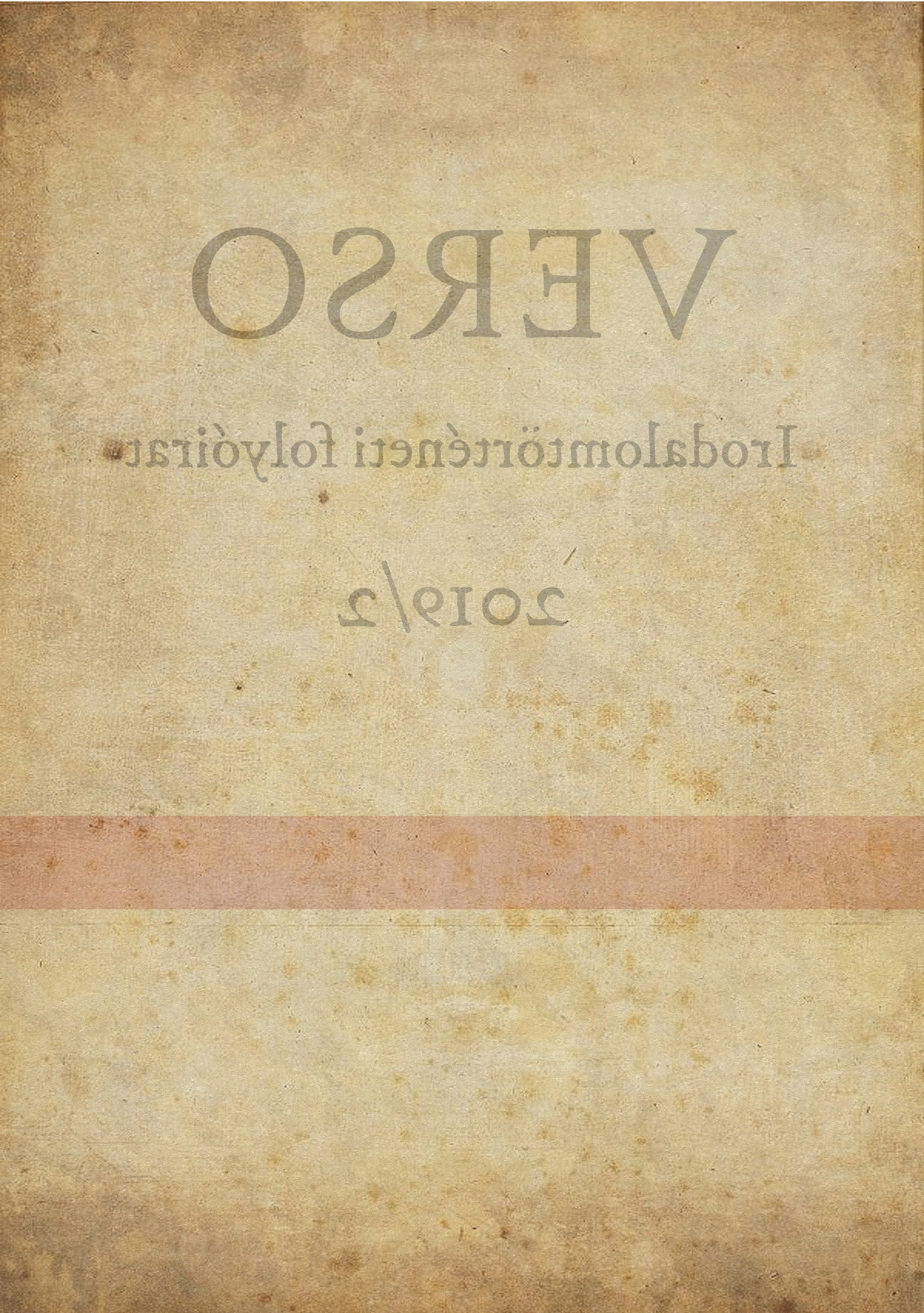Csiszoltság-nyomok a klasszikus magyar irodalom korszakának publikációiban
Különös tekintettel az Aurora. Hazai Almanach zsebkönyveire
DOI:
https://doi.org/10.15170/VERSO.2.2019.2.38-72Absztrakt
A tanulmány célja a magyarországi csinosodás-diskurzus eddig kevésbé reflektált összefüggéseinek hangsúlyozása, amelyek hátterét adják a különféle 18. század végi, 19. század eleji magyarországi csiszoltság-szövegnyomoknak, illetve a 19. század első felében kiemelkedően jelentős Aurora című költői zsebkönyvsorozat számos részletének. Mindez annak a szövegközi vizsgálódásnak a teljesebbé tételét is jelenti, amely a vonatkozó hazai kutatásokban már jócskán elkezdődött, és jelenleg is tart. E munka ezekhez a szakmai folyamatokhoz is hozzá kíván tehát szólni szemelvényekkel bőven tarkított megoldásaival, a csinosodás „kis magyar szöveggyűjteményének” egyik fejezetét is nyújtva. A tanulmány kezdetben a vonatkozó európai alapviszonyokkal foglalkozik, majd nagy mintájú internetes szövegbázisok tartalomelemzésével néz utána, miféle együttjárások, kölcsönhatások fedezhetők fel a különféle korabeli magyar nyelvű csinosodás-szövegekben. A konklúziók levonása a saját eredmények, illetve a szakirodalmi álláspontok ütköztetése révén megy végbe, érintve az adott diskurzus magyarországi határainak, teljesítőképességének kérdéseit is.

